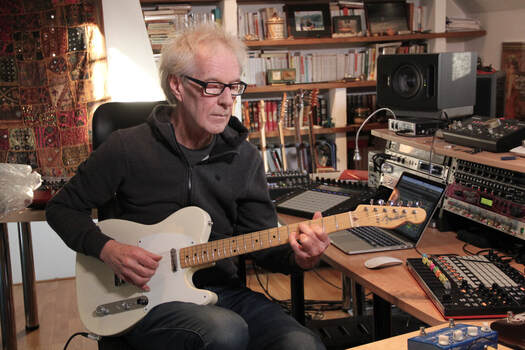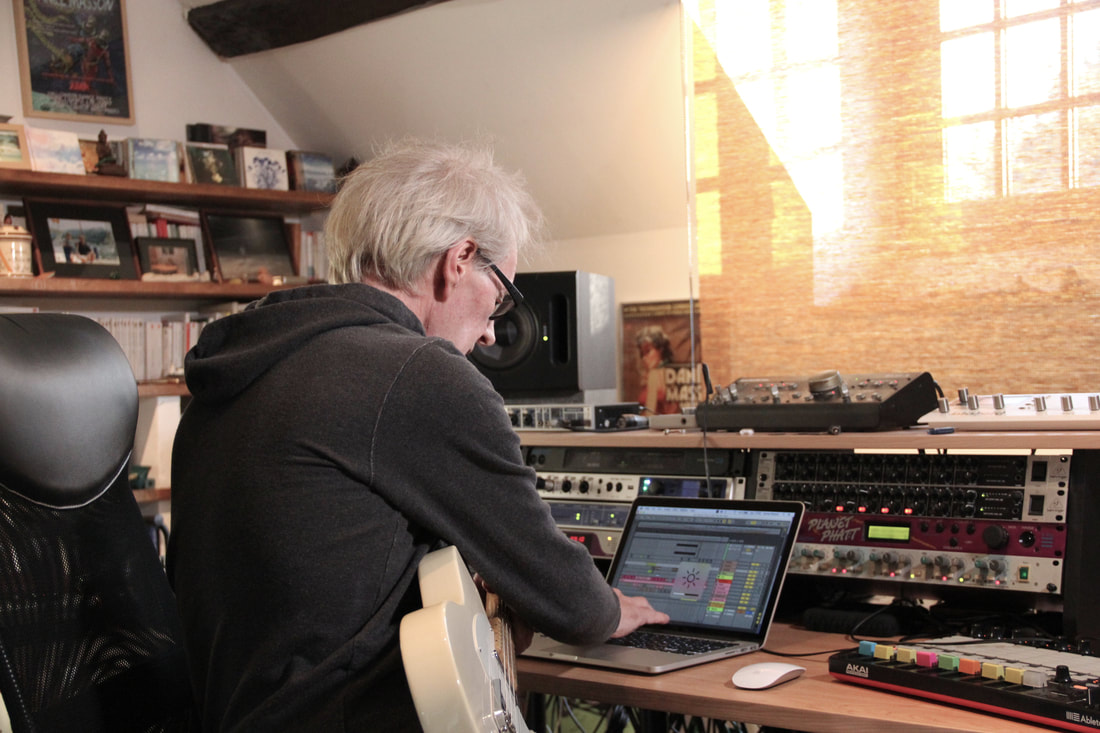
Daniel Masson Interview
Q: It’s been a couple of years since your last release and I was excited to hear your new album Dead End. When did you start working on it?
A: I started Dead End in 2020.
Q: Was your creative approach different on Dead End than on other previous released albums?
A: Depending on the project I have different creative approaches. My previous album Magic Carpet is a musical trip in the geographic space and inspired by my travels around the world.
Dead End is a static and interior trip. It is a more personal album with a true concept.
All the tracks are relying on the same idea. I play many guitar and bass parts as well as I murmur minimal melodies.
Q: Your music is instrumental but was wondering if you went into Dead End with a theme or concept in mind?
A: The Covid time has been a forced invitation to isolation and to an introspection of ourselves. That has changed my vision of our world. Dead End is seven musical thoughts on the topic of the hyper-consumerism of our globalized world and its consequences. Covid is one of them.
Q: It’s been a couple of years since your last release and I was excited to hear your new album Dead End. When did you start working on it?
A: I started Dead End in 2020.
Q: Was your creative approach different on Dead End than on other previous released albums?
A: Depending on the project I have different creative approaches. My previous album Magic Carpet is a musical trip in the geographic space and inspired by my travels around the world.
Dead End is a static and interior trip. It is a more personal album with a true concept.
All the tracks are relying on the same idea. I play many guitar and bass parts as well as I murmur minimal melodies.
Q: Your music is instrumental but was wondering if you went into Dead End with a theme or concept in mind?
A: The Covid time has been a forced invitation to isolation and to an introspection of ourselves. That has changed my vision of our world. Dead End is seven musical thoughts on the topic of the hyper-consumerism of our globalized world and its consequences. Covid is one of them.
Q: I’d love to know a little bit about some of the specific plugins and synths you used on this release. Are there any instruments you find yourself using more often than others?
A: My set-up was a blend of external machines and internal virtual instruments and plug-ins. For the external instruments I used Electron Octatrack and Mono Machine, and a Moog Minitaur. I also used external effects: Strymon and Eventide for the guitars as well as for synths. I used virtual instruments like Predator, AAS Lounge Lizard, Native Instrument Collection.Working on Ableton Live I also used its plug-ins. In addition for dynamics and effects I used plug-ins as Sonnox, Flux and Soundtoys. My midi controllers are an Ableton Push and an Akai APC 40. The guitars I used are Fender Telecaster, Stratocaster, Epiphone Casino and a Fender Jazz Bass
Q: What is your recording process like? And has it changed over the years?
A: Basically my recording process has not changed over the years. The big shift is the progress of the technology which makes the production process easier. My starting point to compose a track is either a rhythmic pattern or a chords progression or just a sound ambience. After this first step it is a long construction: adding new sounds, editing and sculpting each element of the mix. That step can take me several weeks for one track.
Q: Have you started playing shows or virtual shows?
A: In 2011 I started to perform my music live at Busan International Film Festival in South Korea. I played the electronic score I had composed for the restored version of the film Impossible Voyage by G. Méliès (1904). Since then I’ve been playing gigs in Switzerland, United Kingdom, United States, Morocco and Mexico. You can watch at the videos on my Youtube channel. For the moment I have never played virtual shows. Maybe one of these days.
A: My set-up was a blend of external machines and internal virtual instruments and plug-ins. For the external instruments I used Electron Octatrack and Mono Machine, and a Moog Minitaur. I also used external effects: Strymon and Eventide for the guitars as well as for synths. I used virtual instruments like Predator, AAS Lounge Lizard, Native Instrument Collection.Working on Ableton Live I also used its plug-ins. In addition for dynamics and effects I used plug-ins as Sonnox, Flux and Soundtoys. My midi controllers are an Ableton Push and an Akai APC 40. The guitars I used are Fender Telecaster, Stratocaster, Epiphone Casino and a Fender Jazz Bass
Q: What is your recording process like? And has it changed over the years?
A: Basically my recording process has not changed over the years. The big shift is the progress of the technology which makes the production process easier. My starting point to compose a track is either a rhythmic pattern or a chords progression or just a sound ambience. After this first step it is a long construction: adding new sounds, editing and sculpting each element of the mix. That step can take me several weeks for one track.
Q: Have you started playing shows or virtual shows?
A: In 2011 I started to perform my music live at Busan International Film Festival in South Korea. I played the electronic score I had composed for the restored version of the film Impossible Voyage by G. Méliès (1904). Since then I’ve been playing gigs in Switzerland, United Kingdom, United States, Morocco and Mexico. You can watch at the videos on my Youtube channel. For the moment I have never played virtual shows. Maybe one of these days.

